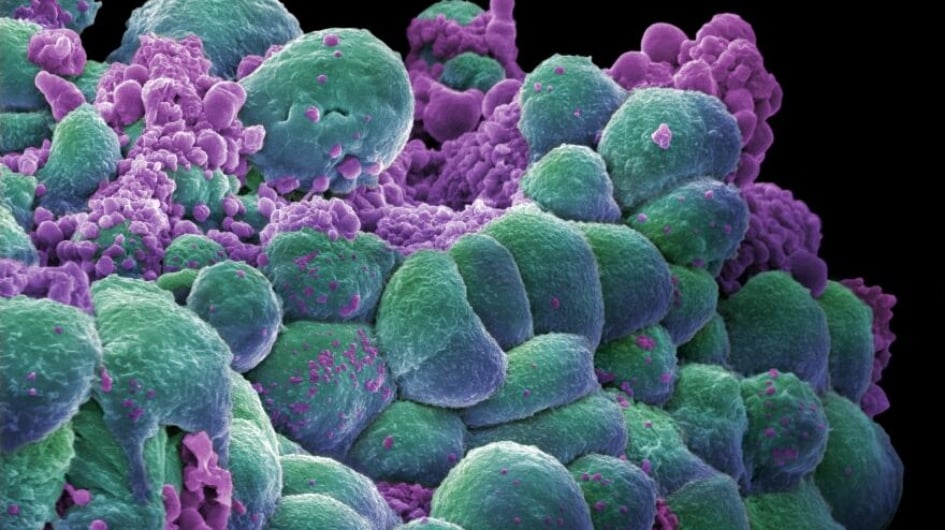
The Institute of Cancer Research, London, strongly welcomes the news that talazoparib (trade name Talzenna) has been recommended by NICE for the treatment of some advanced breast cancers.
The decision means people in the UK who have been diagnosed with advanced breast cancer who have inherited mutations in their BRCA1 or BRCA2 genes will be able to access a targeted treatment that can slow the progression of their cancer on the NHS.
Talazoparib, which is taken as a pill once a day, will be used instead of chemotherapy – a treatment which requires frequent hospital visits, and carries significant side effects.
Science carried out at The Institute of Cancer Research (ICR) underpinned the development of PARP inhibitors, like talazoparib, for patients with BRCA-mutant breast and ovarian cancer. ICR scientists were the first to demonstrate that cancer cells with mutations in BRCA1 or BRCA2 were highly susceptible to PARP inhibitors.
A team of ICR researchers, led by Professor Alan Ashworth and Professor Chris Lord, first described talazoparib and explained how it works in 2013.
'A huge moment'
Professor Chris Lord, Professor of Cancer Genomics at The Institute of Cancer Research, London, said:
“This is a huge moment for the treatment of advanced forms of inherited breast cancer caused by mutations in the BRCA1 and BRCA2 genes. For the first time, NHS patients with this kind of breast cancer will be able to access a new drug which exploits the specific biology of their cancer. We are delighted that NICE have made this recommendation.
"Patients with advanced breast cancer have spent years campaigning for PARP inhibitors to be made available on the NHS. This decision will offer them a targeted treatment which can slow progression of their cancer, and offer them extra months living with better quality of life, free from the side effects of chemotherapy. We are pleased that NICE and the manufacturer have reached an agreement to make talazoparib available at a price the NHS can afford."
Professor Kristian Helin, Chief Executive of The Institute of Cancer Research, London, said:
"The development of PARP inhibitors, including talazoparib, was underpinned by more than 25 years of science carried out here at the ICR, with support from UK charities including Breast Cancer Now and Cancer Research UK. It is wonderful news that UK patients will now be able to benefit from this highly targeted drug on the NHS."